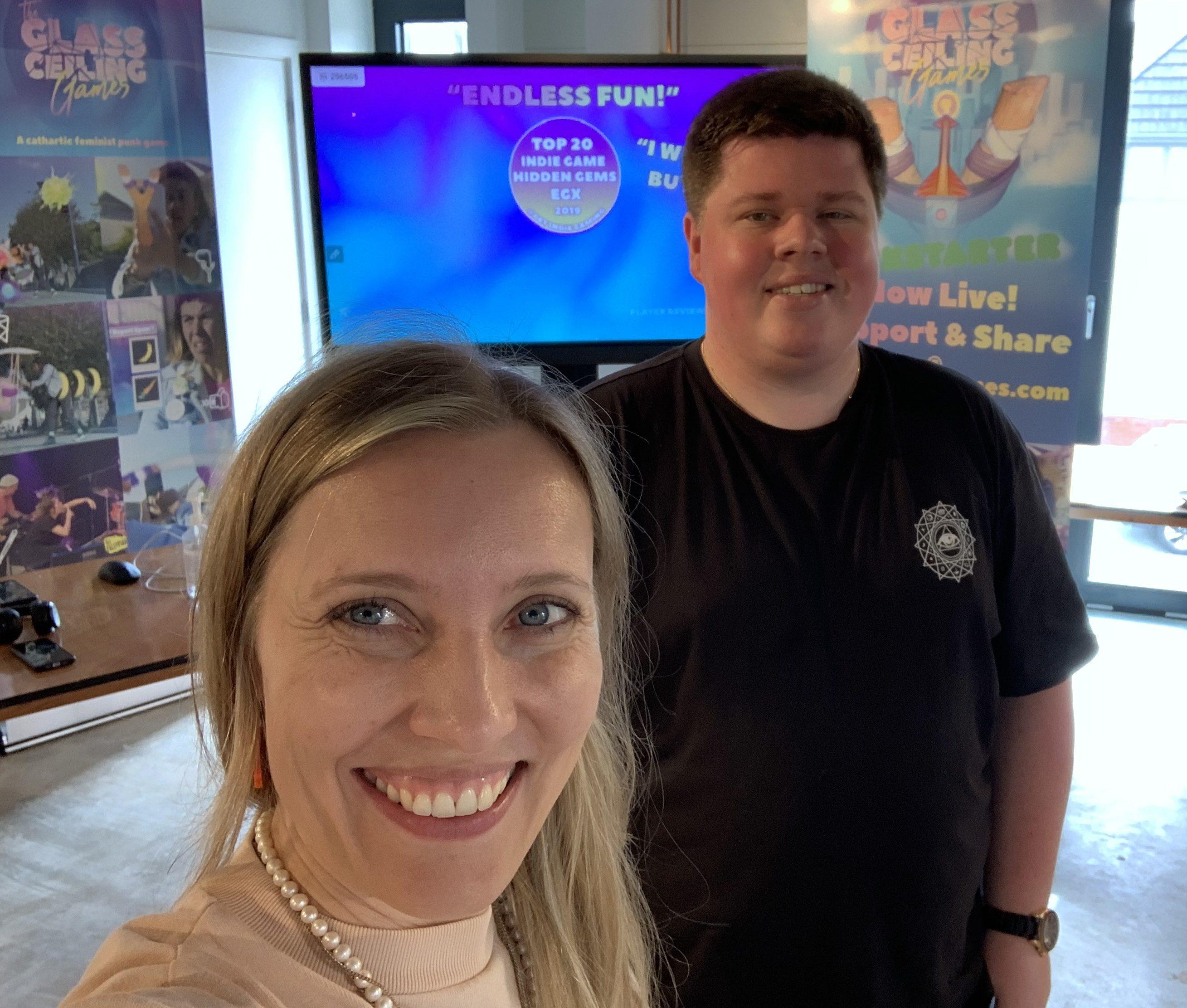Posted on: 3 Jun 22
Developer Morgan Shares His Top 5 Game Programming Tips
Morgan is a game development programmer at Story Juice who makes sense of all things technical and builds a backbone everyone can work from. Here he shares his top 5 beginner programming tips:
Just before I share my programming tips, I wanted to say that since joining Story Juice one of my main roles has been working on The Glass Ceiling Games, which is an outspoken feminist game with a strong message. I considered myself to be very up-to-date with modern feminist views and in agreement with them; but, since working on the project, and talking to people working on it, my eyes have been opened to a world that many women experience and I realised I'm not accustomed to. This has made me much more conscious of not only my thoughts and actions, but also the thoughts of actions of the people around me, which I'm grateful for and now call out.
Now to the tips!

1. Understand the maths and theory
One of the most valuable skills is understanding the basic maths behind games and the engines they use. If you're able to understand vectors, matrices and the equations that accompany them, such as dot products or the determinant, then you will find it easier to write code and easier to debug your own, or someone else's, code.
2. Don’t be shy to look for help
If you're a new programmer you may think that using some code found in online tutorials is cheating and you want to program it yourself; but, why try to reinvent the wheel? It's most likely that the solution you found is the best and most efficient way to solve the problem, so use that code and learn from it. Don’t feel like you're cheating yourself, or you're not a real programmer, as we all start somewhere.
3. Comment your code
Commenting your code is one of the best things you can do to future proof it, so people looking in the future can make sense of it quicker, and to assist you in understanding it when you come back to it months or even years later.

4. Methodical thinking
This may sound like a weird one but it will make a lot of sense. As you begin programming, you will run into many errors and bugs, sometimes these can be as simple as forgetting a semicolon, but in many cases these problems do not make themselves known easily and this is where methodical thinking comes in. To find the root of a problem it's best to take a look at the overall problem you're trying to solve and break it down into each individual component and figure out if you are getting the desired result from each of them. Following this process will help with debugging and bug fixing.
5. Good communication skills
This is a key skill in game development, but even if you're working alone, at some point you'll find yourself asking for help, or discussing a problem with someone. If you can't communicate your problem or thoughts in an articulate and appropriate manner then many people will either disregard them or choose not to listen. Furthermore, when working in a team having good communication skills allows you to convey problems you're having to different members of the team who may not understand the technical aspects.
I hope these thoughts are helpful to you and good luck building your own games!